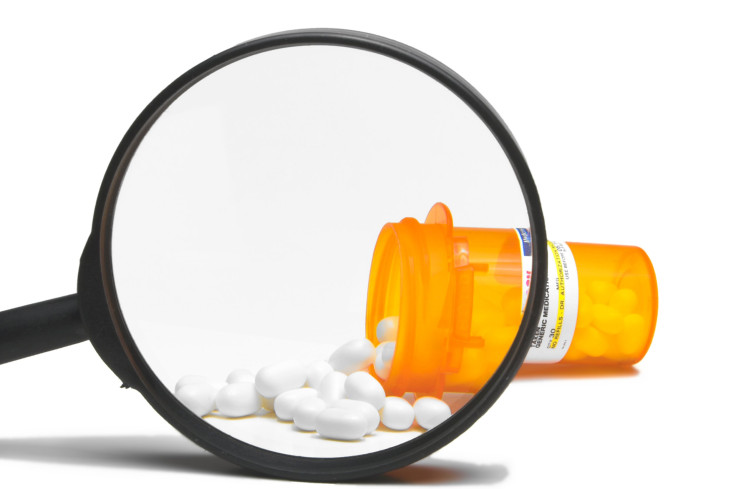FDA Drug Approval Based On Wide, Varying Criteria: Are You Informed About The Drugs You're Prescribed?

As the authority for drug approval — among other things — the Food and Drug Administration has a huge responsibility to keep Americans safe and healthy. After all, if it was to approve a drug that did more harm than good, many Americans could become sick — or worse. While it’s unlikely this would happen, a new study sheds light on the varying quality of evidence the agency uses to approve drugs, and highlights the importance of an informed consumer when it comes to consuming prescription drugs.
“FDA review of new drug applications is guided by the Federal Food, Drug, and Cosmetic Act, which requires ‘adequate and well-controlled investigations’ to determine efficacy,” researchers wrote, according to a press release. “Many patients and physicians assume that the safety and effectiveness of newly approved therapeutic agents is well understood; however, the strength of clinical trial evidence supporting approval decisions by the U.S. FDA has not been evaluated.”
Taking Shortcuts To Approve Drugs Faster
Researchers from the Yale University School of Medicine made the first attemps at evaluating the process, by comparing evidence and other factors in clinical trials that were the basis for the approval of new drugs — known as pivotal trials. In total, they looked at 188 drugs tested in 448 pivotal trials, approved between 2005 and 2012, and meant to treat 206 indications (diseases or conditions). They found that the basis for approval varied widely.
Out of the 206 indications, 74 were approved for treatment with a drug on the basis of a single trial, 77 on two trials, and 50 on three or more. The FDA also approved 91 of those trials on the basis that the drugs treated a surrogate endpoint, which is a sign that the drug worked, even if it wasn’t the intended endpoint — a shrunken tumor or lowered biomarker levels, rather than their complete elimination, for example. The trial features also varied by therapeutic area, expected length of treatment, orphan status, and an accelerated approval.
“The variation in the [amount and type] of clinical trial and evidence used by the FDA to assess the efficacy of novel therapeutic agents highlights the agency’s flexible standards for approval,” the researchers wrote. This flexibility — including surrogate endpoints — allows for a speedier approval process, which can be good for diseases that are in dire need of a treatment. But by speeding up approval, many drugs skip the “costly and time-consuming randomized, double-blinded, controlled trials,” which are often “regarded as the gold standard for evaluation.”
With regard to the studies, the majority that the researchers looked at were randomized (89 percent) and double-blinded (79.5 percent). Fifty-five percent of them also used a placebo while 32 percent used another drug to compare effectiveness — 13 percent used nothing.
Why Being Informed About Our Medication Is Important
Whenever there is a drug that needs approval, the FDA relies on a panel of experts to review trials conducted by the drug company, and to give advice on whether the benefits of the drug outweigh the harms. The panel, which is part of the FDA’s Center for Drug Evaluation and Research, is comprised of physicians, statisticians, chemists, pharmacologists, and other scientists. It’s typically their advice that determines the decision of the FDA.
But although it’s okay to place our trust in a panel of experts, it’s just as important for us to be well-informed about the drugs we consume. Among the trials studied, less than half included comparative information about other treatments — the FDA doesn’t require this information in its approval process. This, in turn, can cause “uncertainty about the benefits and safety of these medications when compared with other available therapeutic agents,” the researchers wrote. Fortunately, such studies “ensure transparency,” Dr. Steven N. Goodman of Stanford University and Dr. Rita F. Redberg of the University of California wrote in an accompanying editorial, saying that they can help “the FDA in its mission to find the right balance between allowing innovation and protecting the public’s health.”
Source: Downing N, Aminawung J, Shah N, et al. Clinical Trial Evidence Supporting FDA Approval of Novel Therapeutic Agents, 2005-2012. JAMA. 2014.



























